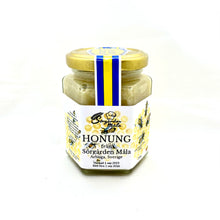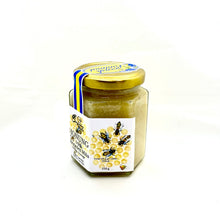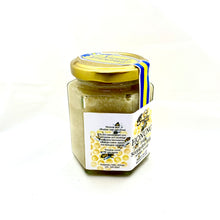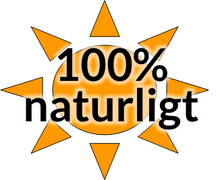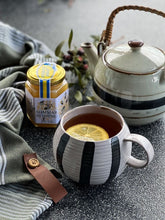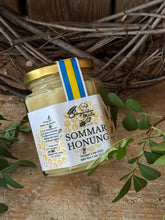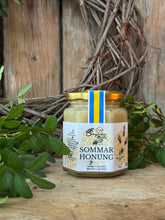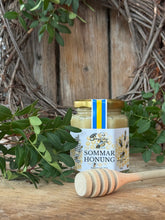
Our own honey
Buy our solid summer honey, from our own apiary. Honey without additives, not heated. A pure natural product that bees collect and at the same time pollinate the flowers, resulting in better harvests and biodiversity.
Perfect as a gift for someone with a sweet tooth! Or why not buy natural honey for yourself?
Bees are our most popular insects. How did they get that way? Honeybees have been around longer, well longer than us and honey has been popular for as long as humans have existed. Many early civilizations placed great value on honey and it and the bees were seen as sacred.
So how does the honey come about? The bees collect nectar which they then convert into winter feed, you can often taste from which flowers/plants the bees have collected their nectar. Always considered useful and widely used in medicine throughout the ages. New research has also shown that honey has antibacterial effects.
The oldest information we have about beekeeping in hives is from Egypt around 2400 BC. and even then it was a popular medicine. In Sweden, beekeeping was common in the past, especially in the south, and swarms were actually captured and put in beehives or straw hives. And in many parts of the world there are many daring people who collect wild honey by climbing trees or mountain climbing. However, you can't really distinguish between bees that are either domesticated or wild because a bee colony can never be tamed.
So, back to the story.. It is natural for bees to swarm when there is not enough room in the hive, then the queen leaves. She takes a certain number of bees with her and forms a new society. New queens rise to power in the old. You can then, which was already known in ancient Egypt, make so-called artificial swarms. This gives the bees more space and prevents new swarming.
Try our prized honey, from our own cultivation!
Hope it tastes good!








